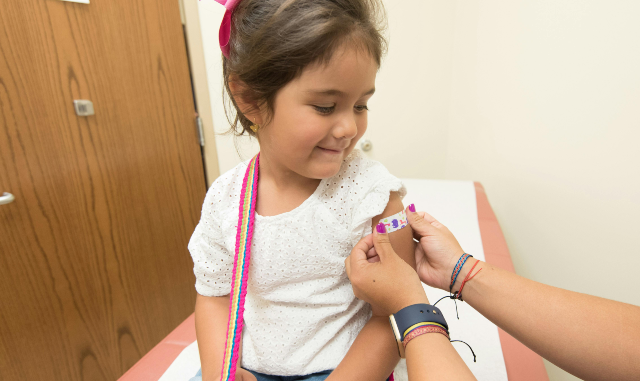
Published July 21, 2025
🚨 What’s happening at Children’s National Hospital?
1. Hospital to end gender-affirming medication prescriptions
Starting August 30, 2025, CNH will no longer prescribe or monitor gender-affirming medications (e.g. puberty blockers, hormones) to minors. However, it will continue offering mental health counseling and general LGBT support services.
The hospital attributes the decision to “escalating legal and regulatory risks”, citing over 20 DOJ subpoenas targeting providers of gender-transition care.
2. Trump-era pressure and federal actions
In January, former President Trump signed Executive Order 14187, classifying gender-affirming care for individuals under 19 as “chemical or surgical mutilation” and threatening to withhold Medicaid/Medicare funds from providers.
Several hospitals nationwide, including CNH, initially paused such care in early 2025. That pause was temporarily reversed after judicial blocks on the executive order—until new legal threats emerged, prompting this current cessation.
3. Impact on patients and families
-
Advocates’ view: Families and LGBTQ+ organizations have condemned the move, warning of increasing mental health risks—anxiety, depression, and suicidality—for transgender youth who rely on these medications.
-
Parent testimonial: Mary Raibman, whose trans son thrived under CNH’s care after beginning treatment in 2018, called the decision “really disgusting”, adding “I believe they’re choosing not to stand up and fight” .
4. Hospital’s official stance
CNH emphasized in statements that:
-
Mental-health and non-medication support will continue.
-
All children are welcome for other medical needs.
-
Care teams will work individually with affected families to ensure ongoing support
5. The broader national trend
This action mirrors similar moves, such as:
-
Children’s Hospital Los Angeles’ closure of its trans youth center (effective July 22)
-
Hospitals in Colorado, Virginia, and New York initially paused gender-affirming services under executive-order pressure.
-
Meanwhile, some providers (e.g., in Massachusetts, Minnesota, Oregon) have publicly vowed to continue gender-affirming care.
 Resulting Effects:
Resulting Effects:
Here are the resulting effects of Children’s National Hospital in D.C. halting prescriptions of gender-affirming medications for minors, framed across legal, medical, psychological, and political dimensions:
⚖️ 1. Legal and Policy Effects
-
Precedent-setting withdrawal: CNH is one of the most respected pediatric hospitals in the U.S. Its decision may influence other institutions to follow, especially in legally ambiguous or politically hostile states.
-
Increased compliance over resistance: The move signals a growing tendency for hospitals to prioritize survival over legal resistance, particularly due to threats of losing Medicare/Medicaid funding and facing DOJ subpoenas.
-
Fuel for lawsuits: LGBTQ+ advocacy groups (like Lambda Legal, ACLU) may file lawsuits against the federal government for interfering with medical standards of care. Meanwhile, parents may sue hospitals for abandoning treatments.
🏥 2. Healthcare System Effects
-
Provider hesitancy: Clinics and hospitals may grow reluctant to prescribe or even discuss gender-affirming care out of fear of litigation or political backlash.
-
Disruption of care continuity: Transgender youth already undergoing treatment now face sudden interruptions. Many will be forced to travel out-of-state or go to private providers, raising cost and access barriers.
-
Overburdened alternative providers: Community clinics like Whitman-Walker in D.C., or telehealth services across state lines, could become overwhelmed by the influx of displaced patients.
🧠 3. Psychological and Social Effects
-
Increased mental health risks: According to medical associations, sudden loss of access to gender-affirming treatment increases risks of depression, anxiety, and suicidal ideation among transgender youth.
-
Loss of trust: Families and LGBTQ+ youth may lose trust in mainstream medical institutions, viewing them as politically compromised rather than patient-centered.
-
Social polarization: While conservative groups celebrate the move as a return to “sanity,” LGBTQ+ advocates see it as state-sanctioned harm.
🌍 4. National Ripple Effects
-
Political validation: This move validates the success of the Trump-era Executive Order 14187, which aims to eliminate trans youth medical care nationwide through administrative pressure.
-
Red-blue state divergence: Blue states (like California, Oregon, and Massachusetts) may become “sanctuary states” for gender-affirming care. Red states may escalate restrictions.
-
More medical deserts: Large swaths of the country may effectively become trans healthcare deserts, particularly for youth in rural or conservative regions.
💡 5. Media and Public Opinion
-
Polarized coverage: Conservative media (e.g., Breitbart) frames the decision as a return to “common sense” and a victory against “child mutilation.” Progressive outlets (e.g., The Advocate) report it as a catastrophic denial of medical care.
-
Cultural chilling effect: The public discourse around gender care becomes more toxic, deterring open discussion by doctors, educators, and even parents.
 Bottom Line:
Bottom Line:
The decision by Children’s National Hospital in Washington, D.C., to stop prescribing and managing gender-affirming medications for minors marks a pivotal shift in the national landscape of transgender healthcare. While the hospital maintains that it will continue offering mental health and support services, the withdrawal from medical interventions reflects the growing legal and political pressures faced by healthcare providers across the country.
This development is more than a local policy change—it is a bellwether for how deeply federal action and ideological battles are reshaping access to care. For supporters of the decision, it signals a return to cautious, traditional medical practice. For critics, it represents a dangerous retreat from evidence-based, life-saving treatment for vulnerable youth.
As more institutions reevaluate their protocols under the shadow of federal enforcement and social controversy, the future of transgender healthcare—particularly for minors—is increasingly uncertain. The resulting effects will not only be felt in hospitals and clinics but in the lives of countless families caught at the intersection of policy, identity, and care.





Be the first to comment